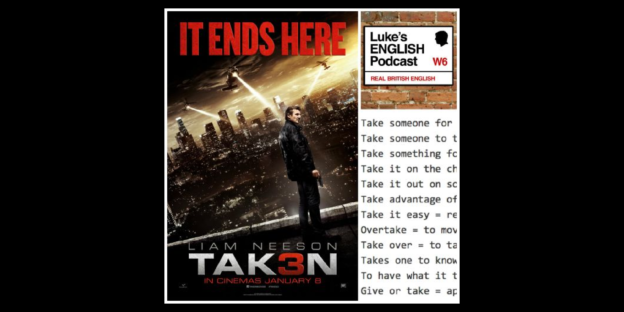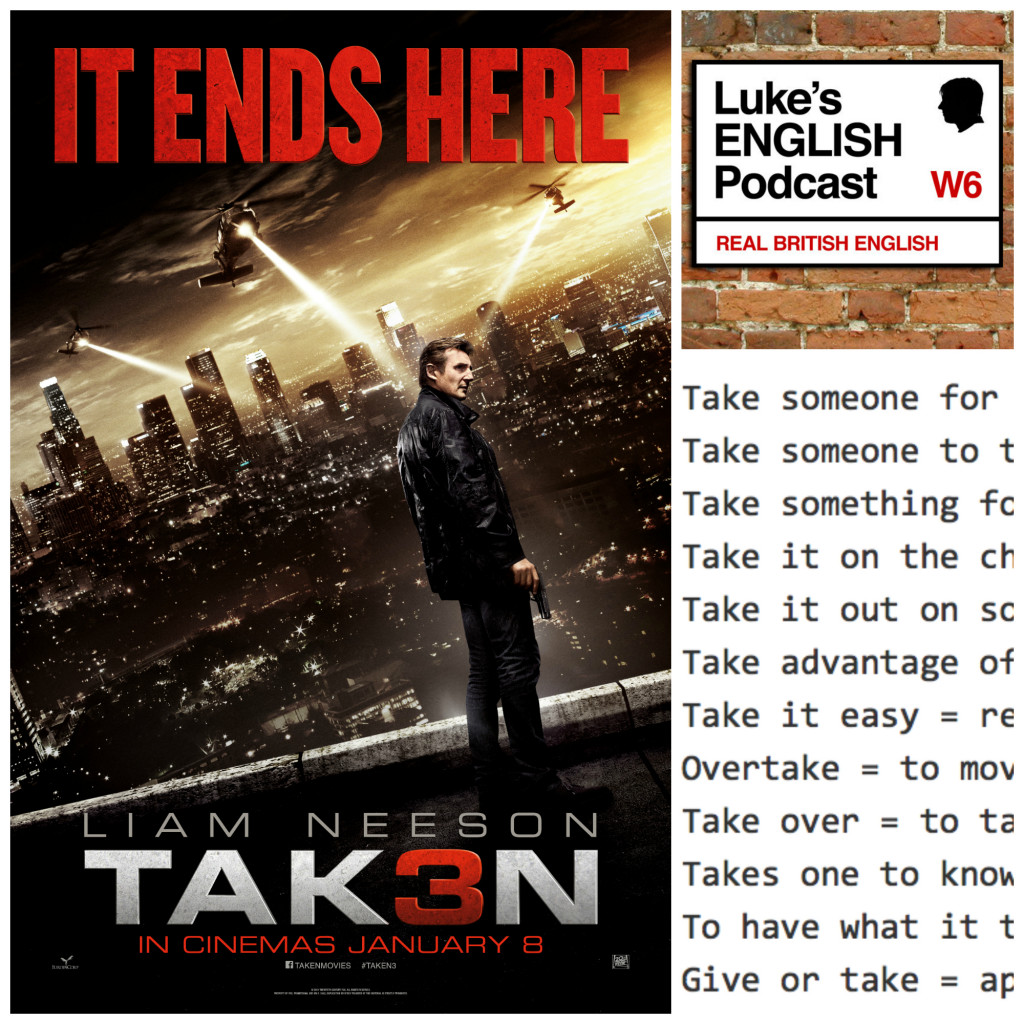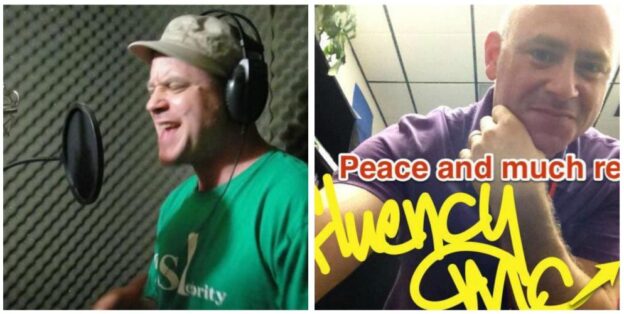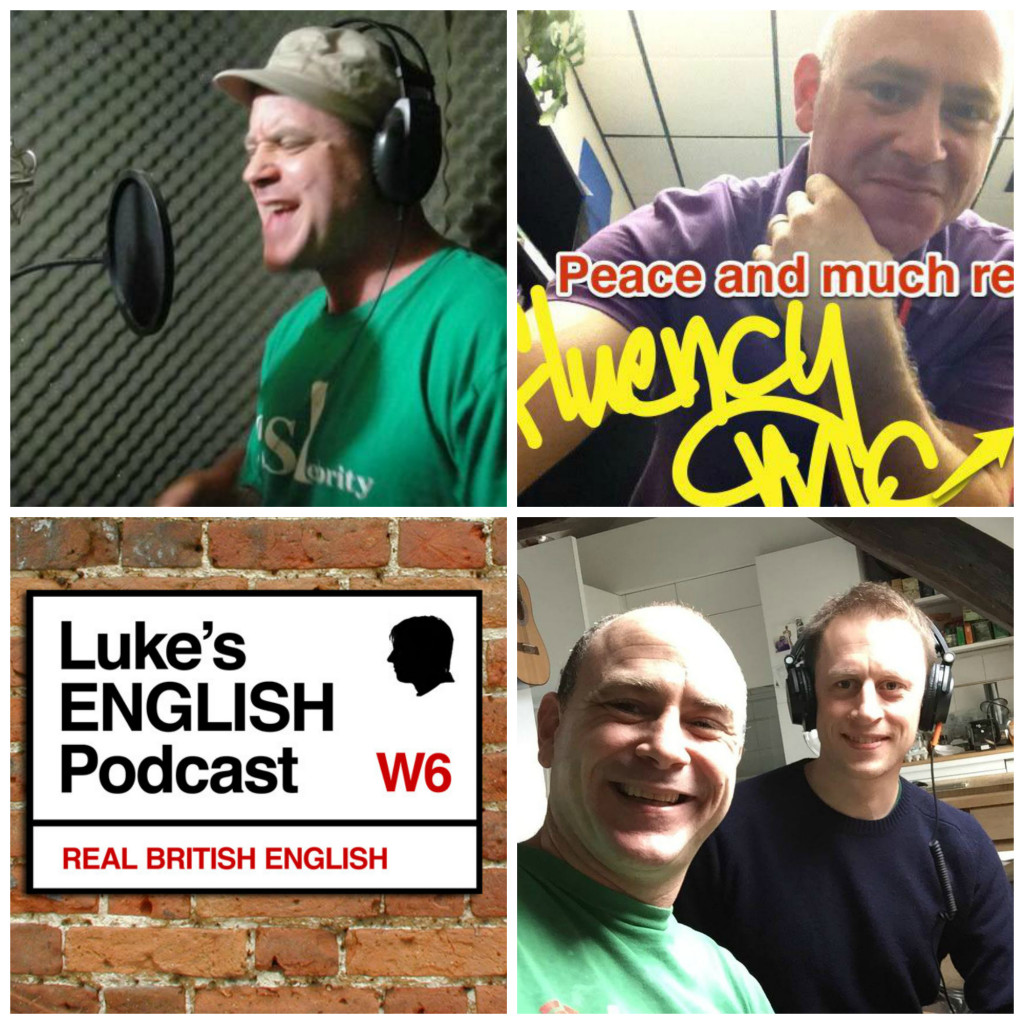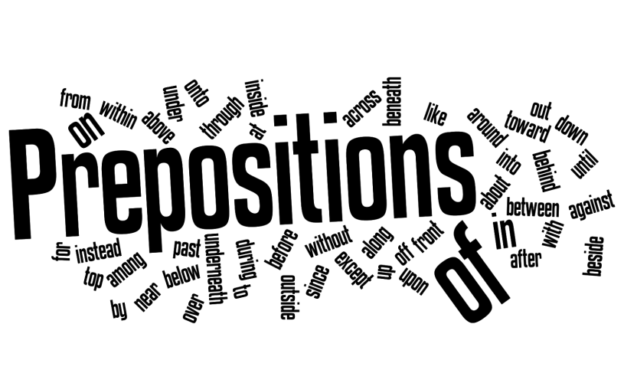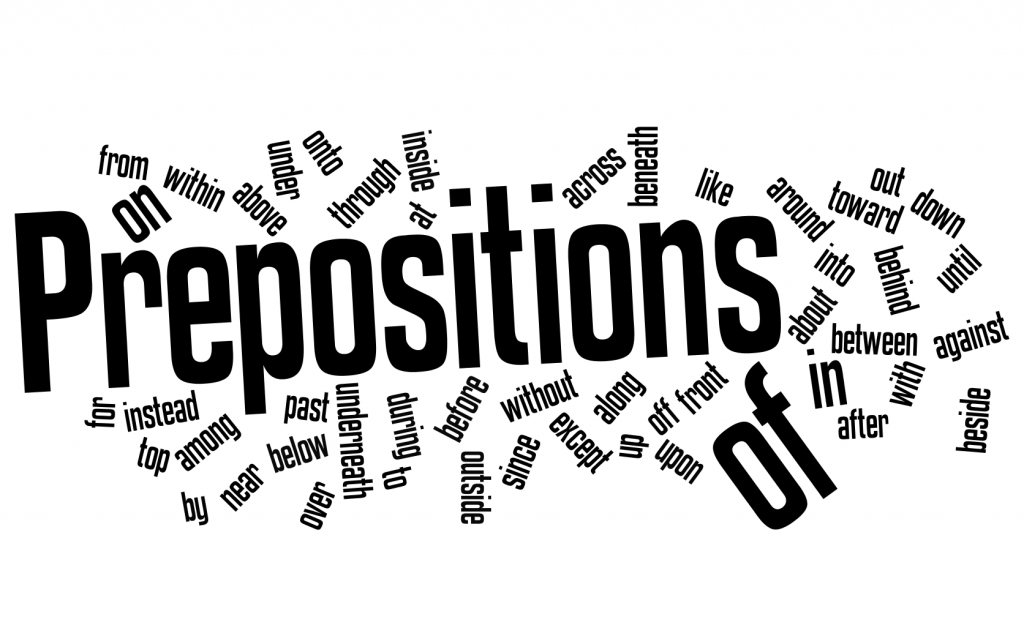Hello listeners and welcome back. This is part 7 in this series which is based on my recent trip to California. I didn’t expect this to be a 7-part series, but it just keeps going because I’ve found more and more things to talk to you about! It’s like the podcast episode that refuses to die, it keeps coming back for more! It’s like the Lambton Worm or something – just when I think I’ve finished it off, it gets longer! I think this will be the last episode, but who knows. Time seems to shrink when I’m recording episodes of this podcast. An hour seems to disappear in just a few minutes because I get really involved in what I’m saying. I wonder if it’s the same experience for you. I hope so.
![]() [DOWNLOAD]
[DOWNLOAD]
If you haven’t heard the previous 6 episodes in this series then I suggest you go back and listen to them first. So far I’ve talked about lots of things including the history of California, some British & American English, Venice Beach, Segways, Baywatch, The Red Hot Chili Peppers, Hollywood & Celebrity Culture, Hotel California by The Eagles, Yosemite National Park, bears, The church of Scientology, an interview with AJ Hoge from Effortless English, a biography of Robin Williams, and descriptions of the things I did and saw while on my honeymoon with my wife.
In this episode I’m planning to talk about San Francisco, earthquakes, the hippie movement, customer service, the California coast and some more British and American English vocabulary.
A lot of what I am saying is transcribed on the page for this episode at teacherluke.co.uk. Look for episode 294.
*I’m expecting a package to be delivered by the postman at some point, so you might hear a knock at the door or the buzzer. It goes ‘buzz’, so it’s not a doorbell it’s a buzzer.*
Let’s get straight into it.
August 16
Cemetery & view of Golden Gate Bridge.
Fisherman’s Wharf & tourist area. Sea lions that weirdly arrived in the harbour just after the 1989 earthquake. Why did they suddenly arrive after the quake? Perhaps their previous social spot had been damaged or something like that. I’m not sure.
Cable car. Long delay and pretty grumpy service but it’s a great experience, hanging on to the side of the car as the driver pulls various weird levers, making the car move up and along the steep streets. We met an American couple who had been married for over 30 years. The wife did all the talking. Apparently they’d been to a Giants game (baseball) and he had caught a loose ball that had flown into the crowd. Apparently this is quite an honour in the states. You can keep the ball.
I met AJ Hoge in the afternoon. Listen to the previous episode for that interview.
That evening we ate dinner in a really well-reviewed Japanese restaurant just near our hotel – Sanraku – incredible sushi! This is the best Japanese food I’ve ever had outside Japan, and I had a load of sake and a couple of beers. Sake is really nice and a little dangerous to drink because you get drunk without realising it because it has such a light taste.
August 17
Earthquake in the morning!
A bit about earthquakes.
Tectonic plates.
They move against each other. Sometimes they overlap, sometimes they press against each other.
Sometimes pressure builds up and then the plates suddenly move at the fault lines. This causes ripples of movement through the ground, or the whole ground to suddenly shift position. The movements, ripples, vibrations or whatever you want to call them can last some time, and they can cause huge amounts of damage.
If the quake happens off-shore, then there’s likely to be a big tidal wave or tsunami after the event. As the ground is displaced very quickly, it can displace massive amounts of water. For example, it might cause the water level to rise suddenly. Imagine filling a plate with water and then tipping the plate slightly. It would cause some of the water to run off the side of the plate. It’s like that but on a much larger scale of course. The water has so much volume and mass that it is almost impossible to stop. When it reaches the land it carries lots of earth and all kinds of detritus with it, turning the wave into an incredibly powerful and unstoppable wall of destruction. You can see footage of this from the Japanese tsunami of 2011. What a tragedy that was (although the Japanese showed characteristic strength and determination in the way they recovered from it).
It pretty much impossible to predict an earthquake, but it seems that along the San Andreas fault at this particular spot near San Francisco, there is a really big earthquake every 70 years or something, and the big one is long overdue. In fact, the whole region of California is subject to earthquakes quite regularly.
Earthquake Myths and Facts
Here are some myths and facts about earthquakes, from the U.S. Geological Society website.
http://www.usgs.gov/faq/taxonomy/term/9830
San Francisco style
Everyone’s wearing sports gear and they’re all really health conscious. They’re constantly in their gym gear and they look very active and healthy. In fact, being healthy and looking after yourself seem to be important aspects of life in this part of the country.
Acai bowls
My wife persuades me to switch to these instead of the big plates of pancakes and its a good move.
Acai are berries that grow in Brazil and apparently they contain everything you need. Vitamins, nutrients, amino acids and all that stuff. These acai bowls are popular all along the coast. They’re a bit hipsterish, but they’re good. The acai berries are turned into a kind of powder, which is mixed with things like almond milk or hemp milk, and frozen fruits, and then blended to form a sort of sorbet. This is then put into a bowl and mixed with granola, nuts, cut banana and strawberry, and is topped with coconut flakes or other things. They’re really good and they keep you going for ages without making you feel bloated. In fact, you don’t feel that full, but you’re not hungry either, and it gives you plenty of energy and no guilt.
My wife is now on a mission to make acai bowls popular in Paris!
Haight Ashbury
We then walked towards the Haight Ashbury area. The plan is to walk all the way over to that part of town, picking up some coffee on route. Then we’d walk through HA, pick up lunch at Wholefoods there, and eat a picnic in Golden Gate Park where apparently there is live music every Sunday. I’m quite curious about Haight Ashbury, because I’ve heard about it and read about it so many times, especially in documentaries about music and art from the 1960s.
History of Haight Ashbury & the Hippy Movement
What happened in Haight Ashbury in the 60s? What was the hippy movement all about?
There was a counterculture movement, a youth movement in the USA (and in many other places of course) that started in the late 1950s but really gathered momentum in the 1960s, seemed to peak in the middle of that decade, and was pretty much over by the early 1970s. I’m sure you know what I’m talking about, as I know that a lot of you listening to this are fans of the music that we associate with that time, and you may well know as much about this subject as I do, but nevertheless here is a brief history of the hippy movement.
This was a subculture and ideological movement which started with the beatniks earlier in the decade. “Beatniks” – that’s kind of a nickname given to the movement that came before the hippies. The beatniks were writers, artists, intellectuals and radicals who were united in a general feeling of dissatisfaction with the status quo. They rejected materialism (e.g. the idea that happiness in the USA can be found by marrying, getting a steady job, buying the right home with the right car, and the right modern accessories in your home and all that kind of square thinking). The Beats were more interested in soul-searching and trying to find some deeper meaning to life. This seems pretty normal now, and part of the dominant culture these days. Everyone has their soul-searching teenage period where they write a diary, write poetry and get all deep and meaningful. Well, that was common for teenagers of my generation in the UK, who got into indie music, started dressing like goths and smoked self-rolled cigarettes. The beats were the first to do that (although I expect there were other movements in Europe that did essentially the same thing, like the Bohemians). The Beats were heavily inspired by jazz musicians like Charlie Parker and Miles Davis and like this kind of jazz music, life for the Beats was a free-form search for truth and inspiration in the creative process. It was like a big improvisation with no boundaries. Sounds pretty groovy, hip and cool right? In fact those are words that come out of that time. All of them were probably coined by jazz musicians, but the beat generation appropriated them, or at least used them too. So, if things were good they were ‘cool’, or ‘hip’. You ‘dig’ things which are ‘cool’. The opposite of ‘cool’ was ‘square’.
We associate the Beat movement with certain writers, who are called the Beat writers, or Beat poets. These are people like Jack Kerouac, Allan Ginsberg, William S Burroughs and Ken Kesey. Some of the beats were into buddhism, sexual liberation and drug use. Out of this subculture came the hippies, who pretty much based their whole way of life on the ethos of the beat generation, and used books like “On the Road” by Jack Kerouac as a starting point for their own rejection of materialism and ‘normal’ life.
The word ‘hippie’ comes from the word ‘hip’, meaning ‘cool’ or in tune with this way of thinking. People also used the word ‘hipster’, but now we know we use the word ‘hipster’ for another kind of modern subculture – those uber-cool people who you find in East London who grow their own denim butter, have long beards and skinny jeans, use no electricity, ride fixie bikes, reject mainstream products in favour of vintage or handmade stuff, reject the dominant political system, and live in an apartment paid for by their rich parents. They’re similar to the beat generation or the hippies but today’s hipsters just seem to be more interested in just being cooler and more culturally aware than everyone else, and don’t have the same sort of communal spirit or mission as the hippies did.
Anyway, a whole generation of young people in the USA and in other parts of the world in the 1960s were really influenced by the beat generation and took on their values, and pushed them further – not everyone did this – not everyone at the time was a hippie. No, it was a subculture after all, but enough people lived the lifestyle for it to be a significant cultural movement. The hippies took it a bit further and embraced the whole concept, forming communes (shared living communities) in certain places – notably Haight Ashbury in SF and Greenwich Village in NYC (where the likes of Bob Dylan were playing protest songs and folk music in cafes).
The introduction of certain drugs, especially LSD into these communities really accelerated the whole movement, along with certain key events like the escalating conflict in Vietnam and the release of records like Bob Dylan’s first album, and albums by the Beatles. LSD was a drug that was created by accident by a pharmacist/chemist. It ended up being appropriated by the hippie movement because of the way it gave users incredibly transcendent mind trips, which made the hippies feel like they were experiencing things on a whole new level of consciousness. The innocence, youth, energy and vitality of this movement peaked in 1966/1967 particularly in the community of Haight Ashbury where, according to the accounts of lots of people, there were all kinds of open, free gatherings of people who took LSD, danced, made love and generally were very peaceful and transcendent, when they weren’t organising protests against the Vietnam war or other injustices. The hippies were for harmony with nature, sexual liberation, the use of drugs for mental liberation (aka consciousness revolution), peace, free love, communal living and eastern influenced spirituality. For the hippies, their immense optimism, fuelled by psychedelic drugs and perhaps a certain amount of naive idealism created the feeling that their love was going to change the world, and that there would be a sort of consciousness revolution which would cause the whole world to realise a totally new way of thinking and to start living in peace. The soundtrack to this period was albums like Sargent Pepper’s Lonely Heart’s Club Band by the Beatles. The thing is though, all the drug taking and free love did not come without a price, and it was naive of the hippies to think that their lifestyle was sustainable. True spiritual transcendence could not be achieved by simply taking a 2 dollar hit of acid, and many people just ended up mentally damaged by their use of LSD, and when harder and more addictive drugs like heroin arrived, the scene became much darker. In fact, hard drugs and other things like the later threat of AIDS pretty much killed the innocence and youthful spirit of the movement.
The optimism of the hippie movement and its decline were really well described by writer Hunter S. Thompson in his book Fear & Loathing in Las Vegas. There is one particularly famous passage in which he describes the essence of the movement as like a wave that travelled across the country, then broke and flowed back again, leaving a sort of cultural high-water mark, or a cultural mark on the country. This is probably Thompson’s most celebrated bit of writing. There is a film version of the book, directed by Terry Gilliam and starring Johnny Depp, who does an amazing acting performance in the role of the main character, who is a version of Hunter S. Thompson. Let’s listen to the scene from the film when Thompson talks about Haight Ashbury and the hippie movement. This is Hunter S. Thompson, played by Depp, in 1971, looking back at the previous 5 or 6 years, surveying what had happened before.
Fear & Loathing In Las Vegas – The High Water Mark
The Woodstock Music Festival was probably the culmination of this whole movement. It didn’t take place in San Francisco, but near New York. That was a massive happening, with hundreds of thousands of people who gathered together to celebrate love and peace, with some of the great bands and musicians of the time, like The Who, Jimi Hendrix and Crosby, Stills & Nash playing the soundtrack.
The end of the dream came with a few events that showed the dark side of all that drug taking and chaos – Charles Manson, Altamont (a Rolling Stones concert that involved the Hell’s Angels who killed a guy), hard drugs and their damaging effects, AIDs.
How does this relate to that Eagles song? They’re singing about people damaged by loss of innocence – the same people who used to be idealistic, but ended up lost in decadence and the temptations of sex, drugs and rock & roll.
Talking of rock & roll, let’s listen to George Harrison, who of course was a member of the Beatles and someone who was at the heart of this whole scene. Here he is from the Beatles Anthology documentary talking about how he visited Haight Ashbury in 1968 expecting it to be a kind of hippie heaven of peace and love, but in fact by 1968 it had become quite a scary place with lots of people just living in the street, begging and taking hard drugs (he described them as ‘bums’). I think it was quite a shock to him and that’s when he decided to stop taking LSD and he sort of rejected the hippie movement and instead chose to embrace Indian transcendental meditation – a much more disciplined and well-established form of spiritual exercise.
George Harrison (originally from Liverpool, UK) – Haight Ashbury 1968
What’s Haight Ashbury like now?
It still has that general atmosphere, but the original feeling is long gone I think. But it’s still a really cool place, and I was very interested in visiting it in order to see what it was really like. Now it’s artisanal coffee shops, a mix of branded clothing stores and unique clothing boutiques. Really it’s just another tourist destination where you can buy Bob Marley posters, hippie clothing, bongs, pipes and fake retro t-shirts. It’s a bit like Camden Town or something. It’s not a genuine place of consciousness revolution any more although there are still some communes of hippies living there and I think that there’s a lot of housing which is offered to homeless people, or people of no fixed address. In the surrounding streets I saw quite a few homeless people, or homeless looking people and people who seemed to be suffering from mental illness, or on medication for drug addiction. You also find some interesting murals painted on the walls with anti-capitalist messages written on them. That’s partly the feeling of the area, but also there’s a sense that the place is a bit of a tourist attraction. There’s Nike store there for example, which is like a temple to individualism and materialism.
Many people think that the place is not what it used to be. I can’t help feeling a bit sad about this, because the hippies were onto something good. Their intentions were good, but maybe they were idealistic and naive. Maybe they were reckless with their drug use and their free sex, or maybe their movement got crushed by the establishment. Anyway, now in Haight Ashbury there are just remnants of those old values. Lots of organic shops and incense and stuff like that, and certainly some people who believe in ethical and sustainable living, but still a sense of increasing commercialisation. I wonder about some of the locals who have lived in the area for a long time and who now find themselves living in a commercialised tourist attraction.
I think I may have come across one of these people during a visit to CVS – a chain of pharmacies that you find all over the USA. We went in to buy some bottled water. We chose one bottle of Californian water and one bottle of Fiji Water, which is bottled in Fiji and then shipped to shops around the world, including California. We got to the counter to pay and the middle-aged woman who served us just said, in a very passive aggressive manner, “Yeah, why NOT buy bottled water from the other side of the world”.
I recognised the sarcasm, and immediately felt judged. What was she really saying?
Guilt trip! This made me feel pretty bad for a while, until I snapped out of it.
What do you think? I expect most of you are thinking – ignore her, she was being really rude! And you’re right, but…
I think she had a point to be honest, but I’m not sure if she made it in the right way. (I mean, giving someone a guilt trip about a product they are selling someone may not be the best way to get your message across, or maybe it is – it had an effect on me!) The woman was certainly rude to me, but does that matter if her point is valid? I wonder what it must be like for her working in CVS, while having these values. Maybe she doesn’t have to work there, maybe she has no choice. Who knows. I don’t even know her background, but just that one comment tells me a lot. What do you think? Did she have a point? Is it wrong to buy bottled water which is sourced in another country? Should the woman have said something to me? Is she a hypocrite for working in the shop even when she disagrees with some of the products it sells? Let me know your thoughts as usual.
I did have another couple of experiences with slightly passive aggressive, weird behaviour.
Another guy by the side of the road who seems to be homeless, tried to attract my attention: “Oh did you drop something…hey!” I just kind of shook my head and smiled a bit, but said no. He said “oh no it’s just my brain entrails you’re stepping on” There is a slightly bad vibe from some of these old hippies, but nothing more than that really. I didn’t feel unsafe there or anything, just a bit freaked out by some of these people.
In the park there was a guy who could have been homeless, or mentally ill, I’m not sure really. He was busking, and by busking in this case I mean playing classic American songs, like Motown, The Beach Boys, Elvis on a loud tape player and just singing along – loudly and badly, like a bad public version of karaoke that nobody wanted to listen to. There were three youngish people sitting on the bench next to him, looking pretty awkward because this guy was pretty loud and acting quite crazily and I think it was a bit off-putting for them. After a while they got up to leave and didn’t really acknowledge him or give him any money, and he said “Hey, thanks for the tip!” – A pretty passive aggressive comment considering they hadn’t given him a tip. I think they were a bit put off and possibly slightly scared of him, and they didn’t respond but kept walking away. He repeated, louder and louder “Hey, thanks for the TIP!! HEY THANKS FOR THE TIP!!!” – a slightly disturbing moment, but nothing bad actually happened.
Despite some of these little scenes had a really nice relaxing time in Golden Gate Park, even though there was no music when we were there, except for the “thanks for the tip” guy. We lay on the grass reading and napping a bit, digesting our food.
More Audiobook Recommendations – www.audibletrial.com/teacherluke
Let’s continue to look at a few recommendations for California-related audiobooks you could download free by going to www.audibletrial.com/teacherluke
The two books I’d like to recommend are associated with the Beat movement of American literature, which was so important to the values of the later hippy movement.
“On The Road” by Jack Kerouac
This is probably the book which inspired the hippy movement more than any other. This is what is written in the summary for this book on audible.com: Few novels have had as profound an impact on American culture as On the Road. Pulsating with the rhythms of 1950s underground America, jazz, sex, illicit drugs, and the mystery and promise of the open road, Kerouac’s classic novel of freedom and longing defined what it meant to be “beat” and has inspired generations of writers, musicians, artists, poets, and seekers who cite their discovery of the book as the event that “set them free”.
Do you fancy listening to an actor read that book to you? Visit www.audibletrial.com/teacherluke to sign up to a trial membership. You can download any audiobook you want, and then either cancel your membership and keep the audiobook, or continue as a member and enjoy more audiobooks every month.
“One Flew Over The Cuckoo’s Nest” by Ken Kesey
Ken Kesey was part of a group of writers called The Merry Pranksters, which also included a man called Neal Cassady who was one of the inspirations for a principle character in On The Road. Kesey and the Merry Pranksters were a group who advocated a particular way of life that inspired the hippy movement. The Merry Pranksters sounded like a cool and funny bunch of people. They drove around America in a big bus. That was the inspiration for The Beatles “Magical Mystery Tour” film. Basically, Ken Kesey is a very important figure in the American counter cultural movement of the 1960s. A key writer in the Beat generation. Beat writers like Kesey influenced so many important cultural figures that followed them, including pretty much all of the famous rock musicians who emerged from the 60s and 70s, including The Beatles, The Rolling Stones, The Doors, The Byrds, Neil Young and everyone else basically. They’re the ones who defined that whole lifestyle that is now so globally pervasive.
“One Flew Over the Cuckoo’s Nest” is the story of a charismatic criminal who ends up in a mental hospital when he’s not really mentally ill. He fakes it in order to avoid prison, thinking it will be much easier. What he discovers is that the mental institute is far more sinister than he’d imagined, and he ends up in a great mental power struggle against the strict nurse who runs the hospital. It’s all about the corrupting nature of power, about fighting against the establishment, about the fine line between sanity and insanity, and the idea there is something rotten at the heart of the American administration. What’s more, it’s just a great dramatic story, terrifically well written with some fantastic surprises. The main character is a lot of fun, and the evil Nurse Ratched is a great villain.
It’s sad, joyful, moving, and powerful, particularly at the end. There’s also a great film of this book, starring Jack Nicholson.
You can download the original version, narrated by Kesey himself (abridged and only 3-4 hours), but I recommend the 50th Anniversary Edition read by actor John C. Reilly (who I’m sure you’d recognise if you saw him – he’s a brilliant actor, with a really distinctive voice). It’s unabridged, so you get the whole book which comes to 10+ hours of audio.
End of Part 7. Part 8 coming soon, and I’m sure it will be the final chapter in this series. :)












































 “Californication” Lyrics & Chords
“Californication” Lyrics & Chords






